On the way to pregnancy, ovulation is the first step – but what happens if there is no conception? Many women have no fertile days despite regular periods. Others do have them, but ask themselves: When is ovulation? If you don’t want to have children, there are many things you can do.
Table of contents
What Is Ovulation?
When you ovulate, a mature egg from your ovary is expelled in the direction of the fallopian tube. This happens around the middle of the menstrual cycle. In each cycle, about 15-20 follicles mature in the ovary under the influence of follicle-stimulating hormone (FSH). Each of these follicles contains an egg, but usually only one of the follicles matures to the point where it is ready to ovulate. When the so-called luteinizing hormone (LH) rises sharply, the follicle is triggered to burst and the egg is released.
When Is Ovulation?
Ovulation and when it occurs depends on the cycle. A cycle is a time from the first day of menstruation to the last day before the next menstruation. On average, this is 28 days, but many women also range between 21 and 38 days.
To understand how ovulation occurs and when it occurs, you need to know about the two halves of the cycle. The first is called the follicular phase, which goes from the first day of menstruation until just before ovulation. The second is the corpus luteum phase or luteal phase and begins at ovulation. Shortly thereafter, the corpus luteum hormone progesterone increases sharply, preparing the uterus to receive a fertilized egg. The increased hormone concentration also causes your body temperature to rise. If ovulation does not occur, your body temperature will not normally change in the middle of the cycle.
No Ovulation Or Fertile Days? This Is How You Can Tell
Whether you menstruate regularly or not, not all women know how and when they ovulate. If you are unsure about your own ovulation, you can try to learn about your cycle. There are several ways to detect possible ovulation. You can observe your body carefully and keep a kind of diary about your cycle. Many physical signs give information about the fertile days and make clear that ovulation and when exactly it occurs. If these signs are missing, it may mean that ovulation is not occurring.
Physical Signs Of The Fertile Days
When is ovulation, many women do not even have to ask themselves. They experience pain at or just before ovulation and can tell exactly how ovulation occurs and when. The most common physical signs include breast pain. However, mittelschmerz is also a relevant sign of how ovulation occurs and when it occurs. This type of ovulation pain can occur when the follicle bursts and occur in the left or right lower abdomen.
An altered cervical mucus can also indicate whether ovulation is imminent or has already occurred. Fertile days may be indicated by cervical mucus that is “spinnable”. This means that it draws threads when you hold it between your fingers and is somewhat more fluid and lighter in color – it appears glassy. This consistency is a good indication of whether ovulation is occurring and exactly when.
For many women, the aforementioned waking temperature (basal body temperature) in combination with the spinnable cervical mucus is a sure sign that they are currently fertile. If you have a consistently rather low-temperature level throughout the month, ovulation will probably not have occurred. Shortly after the follicle bursts, your basal body temperature would rise.
These factors can still indicate the fertile days and can be tested:
- Open, soft and raised cervix.
- Increase in LH hormone, evaluable by ovulation test.
What To Do If There Is No Ovulation?
Have you been testing your body for the various signs for a few weeks and found that ovulation is not occurring? Then you will now want to look for ways to boost your fertile days and find out how to influence ovulation and when. If you have a rather irregular cycle, you can first try to regulate it with natural means. However, this requires that you are healthy and not underweight.
Natural Remedies For A Regular Cycle
Monk’s pepper and lady’s mantle, among others, are said to have a cycle-regulating effect. Acupuncture also helps some women – many midwives and gynecologists offer this service. Some patients rely on homeopathy. To be on the safe side, you can always get medical advice on which remedies you should take.
Periods Without Fertile Days? This May Be The Reason
If your cycle is relatively regular, you will normally also have fertile days. But what if you don’t ovulate despite your period? Especially for couples who want to have children, a regular cycle without fertile days is very frustrating.
A so-called anovulatory cycle can be the reason for menstruation without ovulation. This is then not a real period, but a breakthrough bleeding, caused by low estrogen and progestin levels. Anovulatory cycles usually occur intermittently and when hormone balance is disturbed. Conceivably:
After Birth Or Miscarriage
Your body has to recover from the strain and is not ready for another pregnancy – there is no ovulation. Often, therefore, ovulation does not occur even during breastfeeding and your period does not occur.
After Stopping The Pill
After hormonal intervention in the cycle, your body has to readjust. In the first few months after stopping the pill, ovulation may not occur.
During The First Menstrual Cycles
Young girls often still have very irregular periods. Sometimes ovulation occurs, sometimes there is no ovulation.
Before The Onset Of Menopause
Before the onset of menopause, ovulation occurs less and less frequently until it finally stops altogether. Even if you think you are too young for menopause, look out for symptoms such as hot flashes, headaches, and changes in mood when ovulation does not occur.
But physical stress factors such as excessive exercise or prolonged illness can also be causes of breakthrough bleeding. Known diseases that cause ovulation not to occur include:
- Thyroid disorders
- Circulatory disorders
- Luteal insufficiency
- PCOS
In the latter case, PCOS (polycystic ovary syndrome) is often accompanied by obesity in addition to the increased level of male hormones. In these cases, weight reduction can be helpful in addition to treatment with medication.
No Ovulation Despite Natural Remedies?
If you are not ovulating, you will certainly want to see your gynecologist. He can advise you on what you can do yourself for a regular cycle. If natural remedies, alternative methods, and an adjustment of your lifestyle do not show any effect, conventional medicine can also intervene in the hormone balance.
Treating The Absence Of Fertile Days With Clomiphene
To increase fertility, many gynecologists prescribe clomiphene, an antiestrogenic drug, as a first step. Clomiphene causes the body to produce more FSH and LH by faking a lack of estrogen. What sounds nonsensical at first helps many women who suffer from their few or no fertile days. Even if ovulation has not occurred for a long time, treatment with clomiphene often results in pregnancies. It is usual to take it in one cycle or several cycles for about five days at the beginning of bleeding. Ovulation should occur shortly thereafter. If the medication does not help after up to six months and ovulation does not occur, other means are usually chosen.
The advantage of clomiphene is that it has comparatively few side effects and can be taken in tablet form.
No Ovulation Despite Clomiphene?
If clomiphene does not help you over several cycles, the ovary-stimulating hormones are usually injected directly. Depending on the hormone deficiency, some patients who want to have children receive a combination of FSH and LH or only FSH. This hormone treatment causes follicles to form in the ovary.
Your gynecologist will discuss with you the dosage and duration of this ovulation-inducing therapy.
Direct injection of the hormones FSH and LH has a good effect for many women, but there may also be side effects. One of the most common side effects is that of overstimulation, in which very many and large follicles are formed. Therefore, not only multiple pregnancies may occur, but also the formation of cysts is not uncommon. In addition, such hormone treatment can cause symptoms similar to those of menopause. Those who decide to inject hormones because ovulation does not take place should be prepared for the side effects and also get emotional support from their partner!
Teaser: When ovulation does not occur, many women initially feel responsible for themselves. But there can be many reasons why ovulation does not occur and your desire to have a child is not fulfilled. We provide you with information about this topic and give you tips!
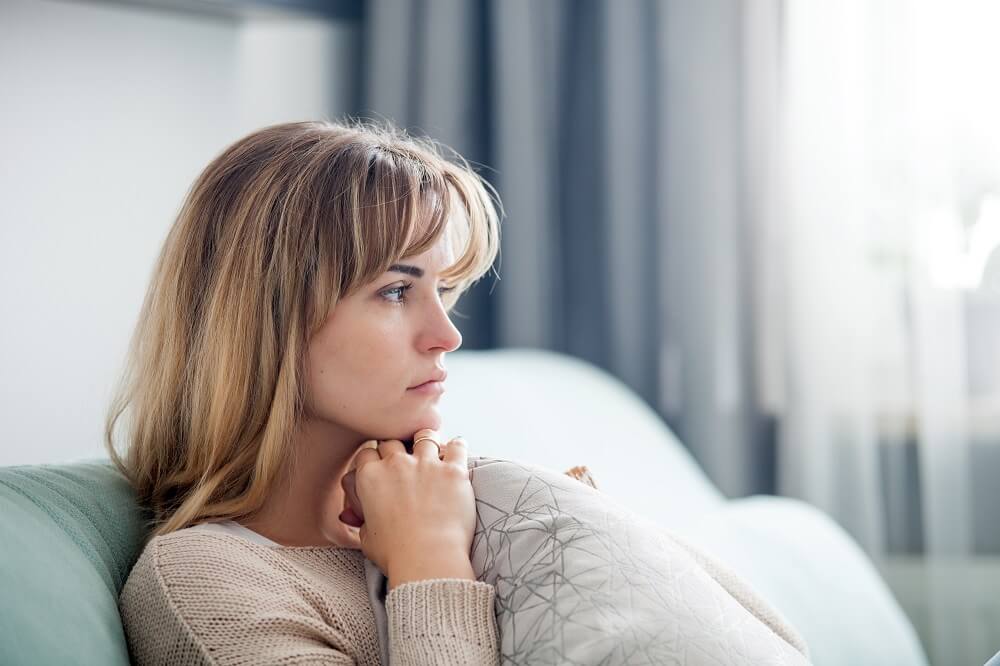

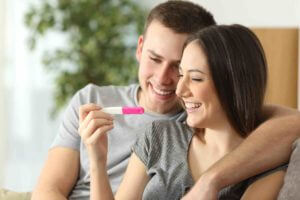
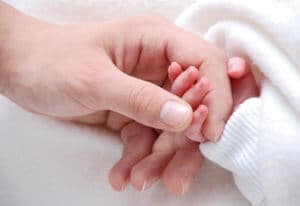
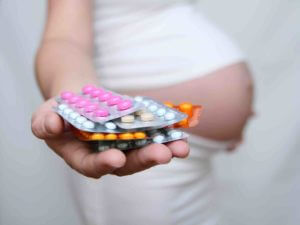



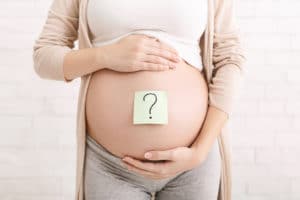

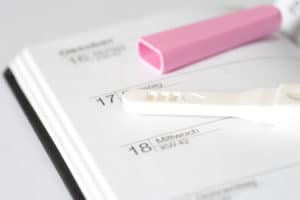



6 thoughts on “No Ovulation: This Is What You Should Know If You Do Not Want To Have Children”